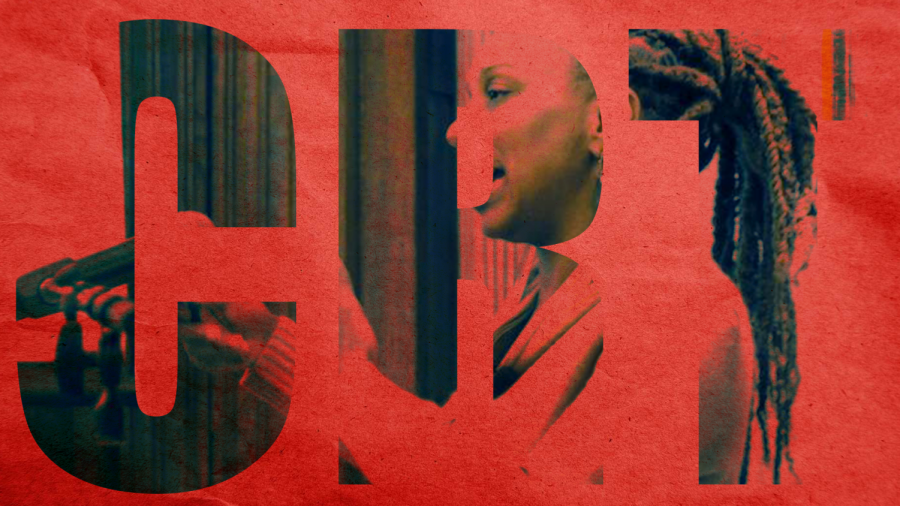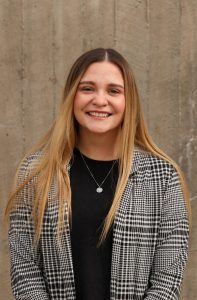U Professors Discuss Potential Banning of Critical Race Theory in Utah
(Graphic by Cyan Larson | The Daily Utah Chronicle)
June 7, 2021
Idaho’s governor Brad Little recently signed a bill banning critical race theory from being taught in schools. Is Utah next?
Idaho’s decision has led lawmakers in a similar direction in other states such as Tennessee, Texas and Utah. In Utah, much of the pressure upon lawmakers is from the Utah Parents United group, which is dedicated to “protecting the parent-child relationship in law and education.” The group’s website also states, “We monitor state and local legislation and promote legislation that supports parents in their role of parenting and speak against legislation that undermines parents in policy and education.”
The coalition wanted change after President Joe Biden signed executive order 13985, which contained information regarding “advancing racial equity and support for underserved communities through the federal government.”
The federal register states, “it is critical that the teaching of American history and civics creates learning experiences that validate and reflect the diversity, identities, histories, contributions, and experiences of all students.”
According to Utah Parents United, this means the inclusion of The 1619 Project and critical race theory in schools across the country, therefore not allowing Utahns to “honor diversity,” in schools.
Critical race theory, as defined by professor Kimberlé Crenshaw, a critical race theorist and law professor at UCLA and Columbia University, “… is a practice. It’s an approach to grappling with a history of white supremacy that rejects the belief that what’s in the past is in the past, and that laws and systems that grow from the past are detached from it.”
In an interview with CNN regarding what critical race theory is and what it isn’t, Crenshaw said, “like American history itself, a proper understanding of the ground upon which we stand requires a balanced assessment, not a simplistic commitment to jingoistic accounts of our nation’s past and current dynamics.”
Ella Myers, associate professor of political science and gender studies at the University of Utah, says it’s important to acknowledge the narrative of CRT in Utah.
“In the current moment, however, and in Utah, the term ‘critical race theory’ is being used by its opponents to refer to any materials or curricula, at any educational level, from any discipline, that acknowledges and addresses how white supremacy has shaped this country’s past and present,” Myers said.
The 1619 Project works to reframe The United States’ founding and the arrival of enslaved Africans. Former President Trump spoke at the National Archives Museum and denounced CRT and The 1619 Project, calling it “toxic propaganda.”
U associate professor of ethnic studies Edmund Fong said CRT should not be considered propaganda.
“Usually, we define propaganda as information that is false or misleading and tied to a political agenda. While critical race theory is often aligned with efforts to dismantle or expose racism, it is certainly not false and many of the ideas developed through critical race theory have gained broad consensus well beyond the academy,” Fong said.
Members of the Utah Parents United coalition sent many requests to state legislators in hopes of bringing an anti-CRT bill to the special session that was called to disperse federal coronavirus relief funds.
Utah Gov. Spencer Cox did not put the issue on the legislative agenda because he believed that the issue should be given more thought than what the time was going to allow during that special session.
“I can’t remember these types of hot-button issues ever being put on a special session call. It’s not that I disagree with the desire to act, but doing it the right way — and at the right time — will lead to better legislation,” Cox said in a letter to the public on May 17.
On the day of the legislative session, lawmakers decided that they did not want to wait on the issue, as Cox had suggested. By calling themselves into an “extraordinary session” they had the ability to pass S.R. 901 Senate Resolution on Critical Race Theory in Public Education, sponsored by Sen. Lincoln Fillmore.
When Republican sponsor Steve Christiansen began talking, all 17 House Democrats rose from their seats and walked out to the steps of the Capitol. According to the Associated Press, Brian King, the Democratic minority leader said they had no option other than to walk out to avoid being a part of the sham process.
Since the walkout, major news outlets and individuals have taken to social media to discuss what is going on not only in Utah but across the nation.
“Racial animus has often been at the heart of intense periods of partisan polarization across American history and whether one is racially prejudiced or not, partisan polarization can often incite and fuel further racial animus or policies that target and scapegoat particular groups, reaching down to the very way Americans understand and remember their history,” Fong said.
Following the Democrats walking out, resolutions on reviewing critical race theory passed in the Senate and House.
The Utah State Board of Education met Thursday, June 4 to review the resolution which prohibits teachers from teaching “that one race is inherently superior or inferior to another race; that an individual should be discriminated against or receive adverse treatment because of the individual’s race; or that an individual’s moral character is determined by the individual’s race.”
Information regarding their decision has yet to be released.








